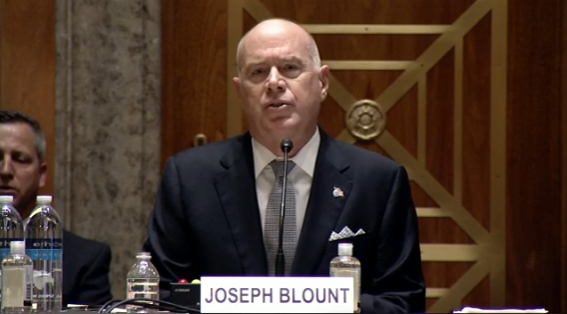
VOA By Steve Herman
The operator of a critical U.S. fuel pipeline crippled by a ransomware attack on its computer system has announced a restart of operations.
Colonial Pipeline said the restart commenced on Wednesday afternoon, but “it will take several days for the product delivery supply chain to return to normal. Some markets served by Colonial Pipeline may experience, or continue to experience, intermittent service interruptions during the startup period. Colonial will move as much gasoline, diesel and jet fuel as is safely possible and will continue to do so until markets return to normal.”
In the meantime, U.S. government and industry officials are pleading with motorists to cease panic-buying of gasoline and not to hoard fuel.
“We understand the concern in the areas where people are encountering temporary supply disruptions, but hoarding does not make things better,” Transportation Secretary Pete Buttigieg told White House reporters on Wednesday.
Just kilometers away in the District of Columbia and the state of Virginia, an increasing number of retailers have seen their pumps run dry.
By midafternoon Wednesday, nearly half of Virginia’s gas stations had no supply, while in one state to the south, North Carolina, 65% of outlets reported a total outage of gasoline, according to the GasBuddy mobile phone application.
“This is not a gasoline shortage. We have an abundant supply of fuel,” said Susan Grissom, chief industry analyst for American Fuel and Petrochemical Manufacturers (AFPM), a trade association.
“There is a plentiful supply, and there’s high demand,” noted Jeff Lenard, a vice president at the National Association of Convenience Stores. “There’s just that problem in the middle with distribution.”
Officials do not know how long that distribution issue will continue.
“We’re hopeful that the pipeline is operational soon and some of the panic-buying retreats a bit,” Frank Macchiarola, a senior vice president at the American Petroleum Institute, told reporters in a briefing call on Wednesday.
The Colonial Pipeline runs from Texas to New York and provides gas for about 45% of the fuel consumed on the East Coast. It was hit by Russian-linked hackers last Friday, who reportedly locked up the pipeline’s computer systems and demanded a ransom.
It has not been disclosed how much ransom was demanded or whether the company has given in to the hackers’ monetary demands, which would allow restoration of its data files that the attack encrypted.
Other options, challenges
Government and industry are working on alternatives to pipeline delivery, but there are challenges.
The trucking industry, for example, has been suffering from a shortage of drivers for several years, while the rail industry does not appear to have flexibility for a quick response.
Using more barges to take fuel from the Gulf Coast to the Eastern Seaboard is an option, but that would require temporarily waiving the Jones Act, which prohibits non-American ships from domestic transport of any goods.
“Granting the Jones Act waiver to open up marine shipping options to get fuel from bulk refineries to the customer served by the Colonial Pipeline is where President [Joe] Biden’s team can make a big difference,” said Grissom of AFPM.
“The Department of Homeland Security is standing ready to review any requests for a temporary waiver of the Jones Act from companies that demonstrate that there’s not sufficient capacity on Jones Act-qualified vessels to carry specific shipments of fuel in and around the region,” Buttigieg said during the daily White House briefing on Wednesday.
Other regulations, including those dealing with truck drivers’ hours, weight limits for fuel trucks and environmental standards, have been relaxed for the emergency.
“I’ve lifted some of the restrictions on the transportation of fuel, as well as access to the United States military providing fuel and with vehicles to get it … where it’s badly needed,” Biden told reporters.
Rationing
One suggested option is rationing purchases, but industry executives are hesitant to recommend that.
“On paper, rationing sounds like a great idea,” noted Lenard. “But what we’ve seen in the marketplace is it actually has the exact opposite [effect]. Basically, once rationing occurs, more panic-buying ensues.”
When the story hit the national news on Monday, “people made a run on the pumps,” Georgia Governor Brian Kemp told reporters in Atlanta.
Kemp complained about a lack of adequate information coming from Washington. “I wish we had more. It’s a little frustrating for me,” he said.
Source VOA


